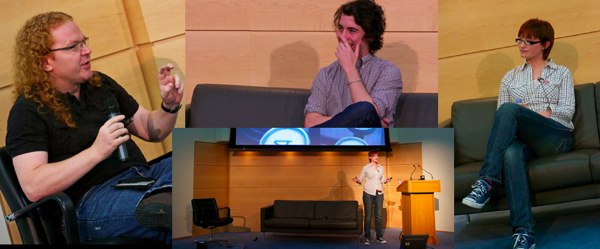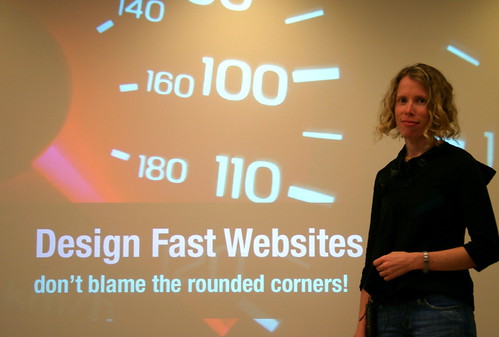Recording talks on a shoestring – a session at encampment 2011 in London
Monday, August 22nd, 2011Today I spent a thoroughly enjoyable day at Encampment London and held a quick impromptu session on “recording talks on a shoestring”. There weren’t any slides but – to prove my point – I recorded the audio of my presentation and published it on the web:
Here are the main things I talked about:
- You can easily record audio with the in-built microphone of computers these days using Audacity. As it does not need installing, this could even be run from a memory stick
- VLC does not only play almost anything on this planet, but it can also record the screen as a video (screencast here). This is incredibly handy when you have speakers who don’t have slides but actually jump around in different programs for live demos
- Once you recorded your audio or video you need to convert it to web formats and host them somewhere. You can either do that inside the tools (Audacity allows for ogg and mp3 saving) but you would still need to upload them somehere. As I am releasing my talks as creative commons I normally use Archive.org for hosting and converting.
- If you recorded your video you can use MPEGStreamclip to simply chop off the start and end and Miro video converter to convert it to WebM
- Audio files I normally tend to convert in iTunes as I can tag them there and add cover art (as I am listening to them on my iPod)
- Once uploaded, archive.org will give you the video as MPEG4, OGV and animated GIF (demo here). Audio gets converted to OGG (like this talk)
- If you want to have your videos converted and hosted without the publicity or licensing of archive.org I normally tend to use Vid.ly which converts your videos on the fly to lots and lots of formats and provides you with a short link to send the right video format to the right device when you call it. It is an incredible service
- The next step would be to allow for subtitling and captioning. This is incredibly useful to allow people to jump to the part of the talk they are really interested in and give search engines a chance to find your content. Captioning and subtitling is expensive. If you see however how cool it is at TED (for example at the excellent Roger Ebert – remaking my voice) you can see the benefits. To do this on the cheap there is Universal Subtitles, a JavaScript that adds a subtitle interface and a subtitling and translation interface to all the videos in a document. Universal Subtitles is based on the Popcorn.js library. Some people already use this one to allow for transcripts to be linked with the audio as you can see in this demo of the minnesota public radio. If you don’t want to do all that by hand there is also the Butter App project
- One last thing I mentioned was Screenr, a free tool where you log in with Twitter and you get a screencasting app that allows you to record 5 minutes of your screen and actions and converts and hosts the final video for you. You can also save the MP4 or send it to YouTube.
This was just a quick introduction as to what you can use that is free to provide simple recordings of your event. Nothing of that replaces a professional recording, but it also doesn’t replace a few thousand pounds in your pocket with air.
What I didn’t mention was that Keynote and Quicktime both have presentation and screen recording facilities. But as they are not free, I skipped that.
 Original photos by
Original photos by 
